 W
WJános Arany was a Hungarian poet, writer, translator and journalist. He is often said to be the "Shakespeare of ballads" – he wrote more than 102 ballads that have been translated into over 50 languages, as well as the Toldi trilogy.
 W
WAttila F. Balázs is a poet, writer, translator, editor, and publisher.
 W
WValéria Dienes was a Hungarian philosopher, dancer, dance instructor, choreographer and one of first Hungarian woman to graduate from university. She is widely considered to be one of the most important Hungarian theorists on movement. She was the recipient of Hungary's highest literary award, the Baumgarten Prize in 1934.
 W
WBaron Lajos Dóczi, aka Dóczy was a Jewish Hungarian poet, journalist. His father, Adolf Dux, was a wine trader, and is not to be confused with the writer of the same name, Adolf Dux.
 W
WIlona Duczynska, was a Polish-Hungarian-Canadian revolutionary, journalist, translator, engineer, and historian. Her husband was Karl Polanyi and her daughter is Kari Polanyi Levitt.
 W
WAdolf Dux was a Hungarian Jewish writer and journalist.
 W
WEdit Tasnádi is a Hungarian orientalist, literary translator and academic.
 W
WÁgnes Gergely is a Hungarian writer, educator, journalist and translator.
 W
WÁrpád Göncz was a Hungarian writer, translator, agronomist and liberal politician, who served as President of Hungary from 2 May 1990 to 4 August 2000. Göncz played a role in the Hungarian Revolution of 1956, for which he was imprisoned for six years. After his release, he worked as a translator of English-language literary works.
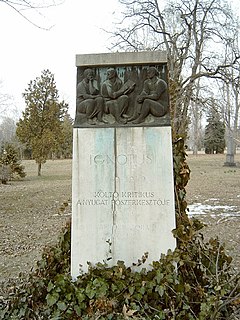 W
WHugó Veigelsberg was a noted Hungarian editor and writer who usually published under the pen name Ignotus. He was distinguished for the lyric individuality of his poems, stories, and sociological works. In addition to "Ignotus", he also wrote under the pseudonyms "Dixi," "Pató Pál," and "Tar Lorincz".
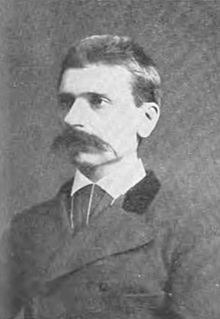 W
WBéni Kállay de Nagy-Kálló or Benjamin von Kállay was an Austro-Hungarian statesman.
 W
WSándor Kányádi was a Hungarian poet and translator from the region of Transylvania, Romania. He was one of the most famous and beloved contemporary Hungarian poets. He was a major contributor to Hungarian children's literature. His works have been translated into English, Finnish, Estonian, Swedish, German, French, Romanian and Portuguese.
 W
WTamás Katona was a Hungarian historian, academic, politician, who served as Secretary of State for Foreign Affairs from 1990 to 1992 and as Mayor of Budavár between 1994 and 1998. Besides that he represented Vác in the National Assembly of Hungary from 1990 to 1994, and functioned as MP from the Hungarian Democratic Forum's Pest County Regional List between 1994 and 1998.
 W
WLeopold Katscher (1853–1939) was a Hungarian Jewish writer and peace activist. He was a strong influence on Rosika Schwimmer, his niece.
 W
WFerenc Kazinczy was a Hungarian author, poet, translator, neologist, the most indefatigable agent in the regeneration of the Hungarian language and literature at the turn of the 19th century. Today his name is connected with the extensive Language Reform of the 19th century, when thousands of words were coined or revived, enabling the Hungarian language to keep up with scientific progress and become an official language of the nation in 1844. For his linguistic and literary works he is regarded as one of the cultural founders of the Hungarian Reform Era along with Dávid Baróti Szabó, Ferenc Verseghy, György Bessenyei, Mátyás Rát and János Kis.
 W
WGéza Képes was a Hungarian poet, translator and polyglot.
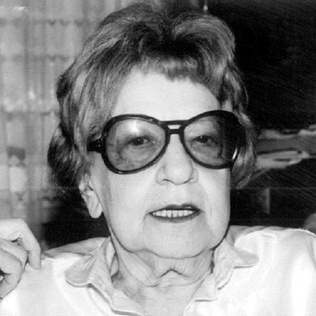 W
WKató Lomb was a Hungarian interpreter, translator and one of the first simultaneous interpreters in the world. Originally she graduated in physics and chemistry, but her interest soon led her to languages. Native in Hungarian, she was able to interpret fluently in nine or ten languages, and she translated technical literature and read belles-lettres in six languages. She was able to understand journalism in further eleven languages. As she put it, altogether she earned money with sixteen languages. She learned these languages mostly by self-effort, as an autodidact. Her aims to acquire these languages were most of all practical, to satisfy her interest.
László L. Lőrincz is a Hungarian orientalist, science fiction author, and translator. His 1982 collection A nagy kupola szégyene deals with crime, punishment, and social isolation. Several of his novels are noted for their plots and ideas.
 W
WÁdám Nádasdy is a Hungarian linguist and poet. He is professor emeritus at the Department of English Linguistics of Eötvös Loránd University, Budapest. He specializes in post-generative phonological theory, morphophonology, English and Germanic historical linguistics, varieties and dialects of English, as well as English medieval studies and Yiddish philology.
 W
WIstván Nemere is a Hungarian novelist, Esperantist, and translator. He has written 744 published books by Nov 2020, mostly in Hungarian, over twenty novels in Esperanto. He has been a notable figure in the world of Hungarian science fiction with as many as 60 novels and several stories.
 W
WÁgnes Nemes Nagy was a Hungarian poet, writer, educator, and translator.
 W
WÁgoston Pável, also known in Slovenian as Avgust Pavel was a Hungarian Slovene writer, poet, ethnologist, linguist and historian.
 W
WZsuzsa Rakovszky is a Hungarian translator and writer. Her surname also appears as Rakovsky.
 W
WThe native form of this personal name is Rapai Ágnes. This article uses the Western name order.
 W
WLea Ráskay, O.P., was a Hungarian nun and scholar of the 16th century.
 W
WPeter Andrew Sherwood is a British Professor of Linguistics, who was born in Hungary, and left the country with his family after 1956. He is a writer, editor, translator and lexicographer and as the Laszlo Birinyi Sr., Distinguished Professor in Hungarian Language and Culture at the University of North Carolina at Chapel Hill.
 W
WTamás István Soproni is a Hungarian linguist, translator and politician, who has been the Mayor of Terézváros since 2019. He is a member of the Momentum Movement.
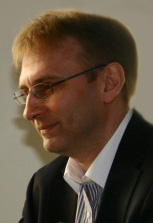 W
WAttila Henrik Szabó is a Hungarian born writer, translator, television and radio journalist, producer, communications expert.
 W
WFruzina Szalay was a Hungarian poet and translator.
 W
WAlbert Szenczi Molnár was a Hungarian Calvinist pastor, linguist, philosopher, poet, religious writer and translator.
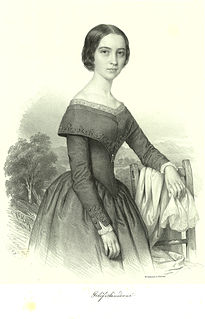 W
WJúlia Szendrey was a Hungarian poet, writer and translator, most known as the wife of celebrated Hungarian poet Sándor Petőfi.
 W
WMario Szenessy was a Hungarian-German author, translator, and literary critic.
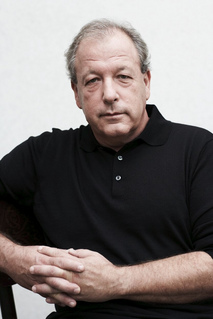 W
WMiklós Vámos originally Tibor Vámos, is a Hungarian writer, novelist, screenwriter, translator and talkshow host, who has published 33 books.
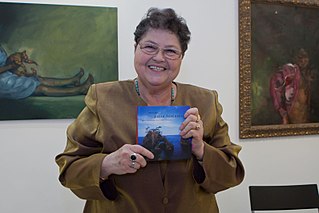 W
WJudit Vihar is a Hungarian literary historian, Japanologist, professor emerita, translator, haiku poet and head of The Hungary–Japan Friendship Society. She has been active in the relationship between Japan and Hungary for decades. She is fluent in Hungarian, Japanese, Russian and Bulgarian.